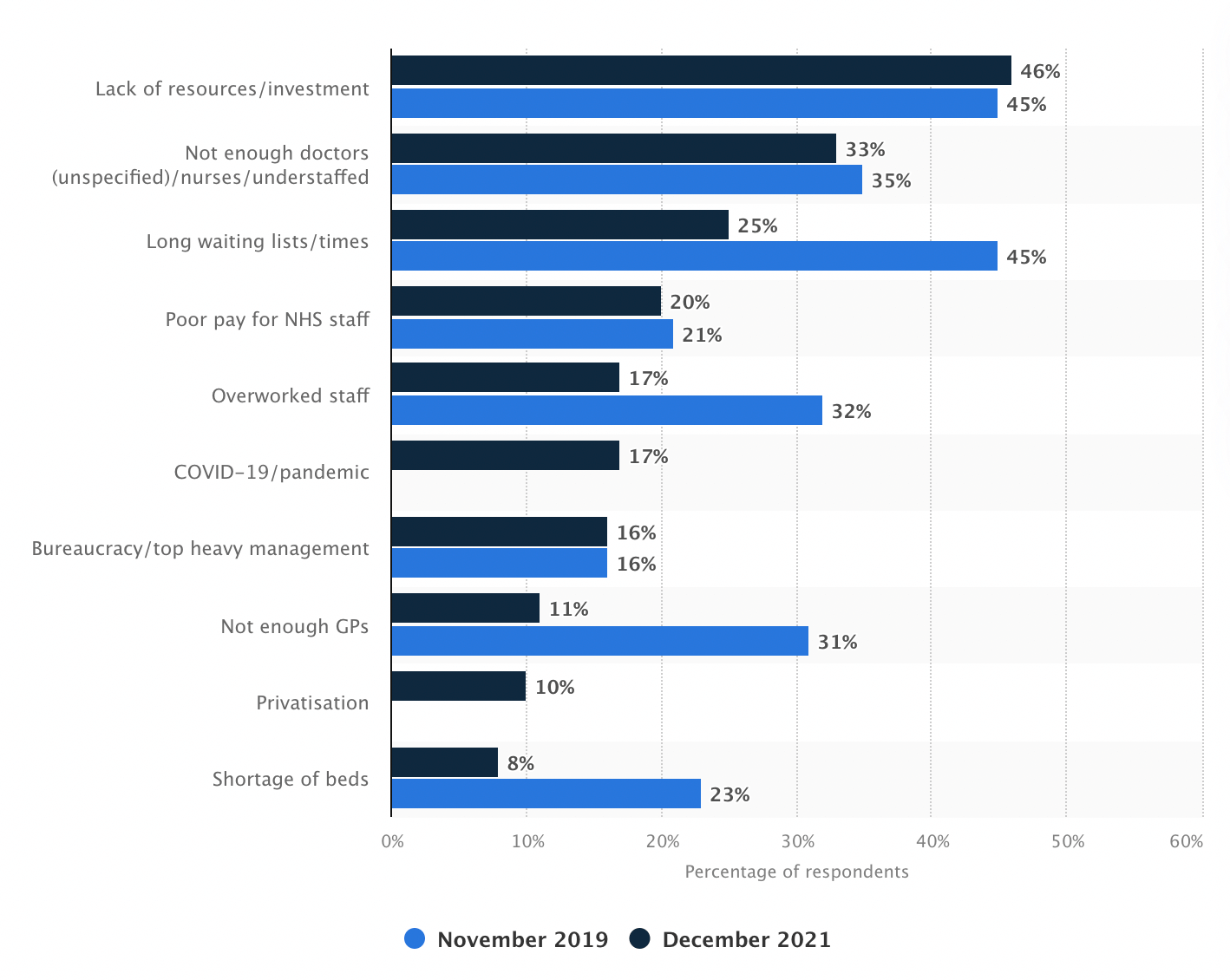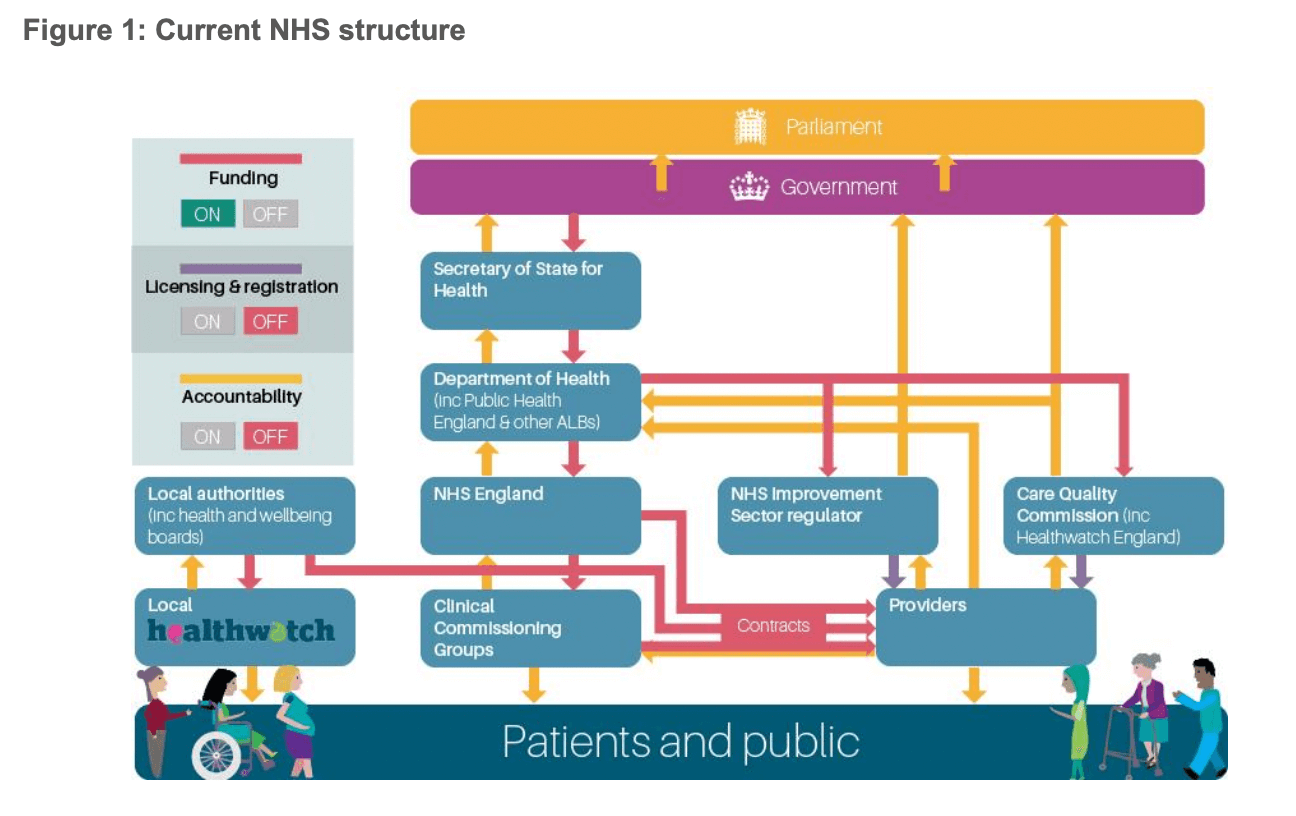There is a guide here, there is a course here.
Introducing the NHS
The NHS was established by the NHS Act 1946. This Act specified that, it was `the duty of the Minister … to promote the establishment in England and Wales of a comprehensive Health Service designed to secure the improvement of the physical and mental health of the people of England and Wales and the prevention, diagnosis and treatment of illness’. The services provided to meet these aims were to be free of charge, based on clinical need, not the ability to pay. The NHS was launched, and the first patients treated on 5 July 1948.
Although there have been many structural and policy developments since 1948, the underlying principles have not changed. These are that NHS services are:
• available to everyone
• free at the point of need (or use)
• based on clinical need, not the ability to pay.
All of the major political parties remain committed to these core principles.
Other enduring characteristics of the NHS are that:
• it is funded through taxation
• it manages within overall resource limits determined by the Government each year
• finite resources have to be matched with infinite demand for health services with tough choices over priorities needed as a result • there is an expectation that ‘efficiency savings’ can be made, often as a result of structural or technical developments
• there is intense political, public and media interest in, and scrutiny of, the NHS.
The NHS is also Europe’s largest employer with over 1.7 million employees across the UK in 2015. However, although it is usually referred to as if it were a single organisation, it actually comprises a wide range of different bodies with specific responsibilities
What problems is the NHS having?
- Challenges to manage the budget which is causing financial pressures throughout NHS
- An ageing population
- A growing population
- It seems like the lack of resources and or management of resources is the main issue.
How do you effectively and efficiently allocate resources to, and manage the NHS? - Evolving healthcare needs, such as the increase in cases of obesity and diabetes, or antibiotic resistance.
- Medical advancements save lots of lives every year but push up costs considerably. It is estimated that progress in medical technology costs the NHS at least an extra £10bn a year.
- Closure of local services due to centralisation drives
- Too much paper work. Nurses have to complete far to much paper work and don’t have nearly enough time to deal with patients the way they used to. Nurses ‘drowning in sea of paperwork’ – BBC News
- Challenges in recruiting talent
- An increase in reliance on privatised services

A survey of 1000 people in the general public (may not be accurate & not very smart questions).
Interesting that Germany, for example, has almost twice as many nurses per capita than the UK.
But the lack of staff in the NHS is not just because of less spending, the health service cannot even fill the posts for which it has got funding.
The NHS in England has nearly 100,000 jobs unfilled at the moment.
The total represents one in 12 of all the posts in the health service and would be enough to staff 10 large hospitals.
It includes about 40,000 nurse posts and nearly 10,000 doctor vacancies.
Some of the gaps are filled using overtime and agency staff, but some simply go unfilled.
There are various initiatives in place to recruit and retain staff.
And the number of training places for doctors and nurses are increasing.
There are some amazing sides of NHS
I have worked in the NHS in my career as a Child Psychotherapist. I have also been a patient for severe fainting attacks of 20 minutes and more where I voided and seemed dead. The Health Service is WONDERFUL. I spend a lot of time in Kenya. The people of the UK forget what it is like to have to ‘pay or die’, when one can’t pay. UK Nationals and Residents do not just want ‘care’ – they want ‘perfect, most expensive care’. More money would help. More staff would help. But why don’t YOU volunteer, give money, support causes in the NHS. It is not necessessarily a RIGHT, we have made it so and should remain humble and grateful. I hate the wingers I meet who moan when they have to wait an hour or so. I despise the complainers when they come in at the slightest sniffle and waste the professional’s time. I think in general it is well organized, the staff are pleasant and hard working and the care is good. Of course it must be a bit of a lottery given the enormity and geography of the provision. Of course more could be done. But YOU train as a NHS professional; you get your kids to train and stop blaming others for not giving you enough sweeties. It is a wonderful thing, the NHS. Just don’t forget that. Treat it with respect. Help it to survive and improve and be the world wide most admired successful idea ever put into action. I thank the NHS from the bottom of my heart for my career and my treatment. THANK YOU.
Some other thoughts about issues is here.
The NHS structure

